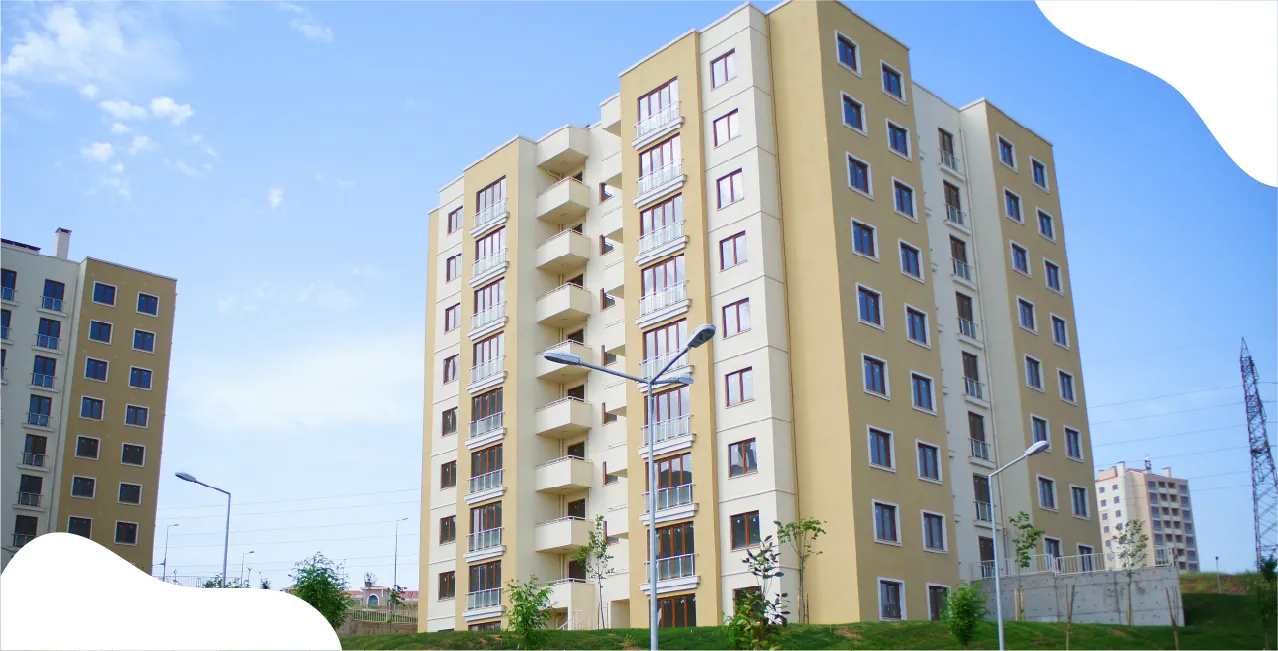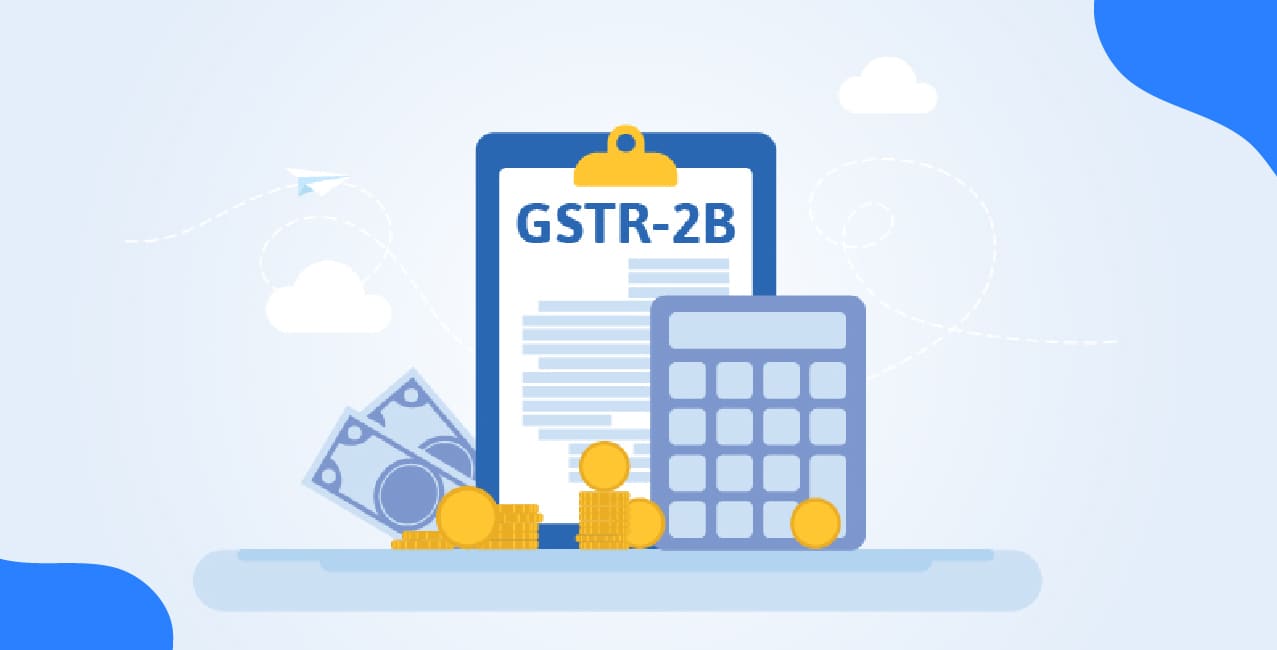GST on Residential Property: Tax Rules, Applicability & Exemptions

Check Your Loan Eligibility Now
By continuing, you agree to LoansJagat's Credit Report Terms of Use, Terms and Conditions, Privacy Policy, and authorize contact via Call, SMS, Email, or WhatsApp
Nitin, a businessman, bought a residential property for his family worth ₹2,00,00,000 (excluding GST). Here’s how GST applies:
- Under-Construction Property: GST is charged at 1% (without ITC) for affordable housing and 5% for non-affordable housing.
- Ready-to-Move Property: No GST if the property is complete and has a completion certificate.
Since Nitin’s property is under construction and not "affordable" (as per government limits), he pays 5% GST on ₹2,00,00,000.
Calculation:
Key Points:
GST is only on under-construction properties.
- No GST if the property is ready to move.
- Affordable housing has a lower GST rate (5%).
Nitin pays ₹10,00,000 extra as GST, making the total ₹2.10 crores.
Read More – How to Pay Property Tax Online – Complete Guide
GST on Residential Property – Simple Explanation with Example
Nitin, a businessman, wants to buy a residential property for his family. He is confused about GST charges. Here’s a simple breakdown:
When is GST Charged?
- Under-construction property: GST applies (rates vary based on property type).
- Ready-to-move-in property (with completion certificate): No GST (only stamp duty and registration charges apply).
GST Rates for Different Property Types:
Nitin’s Case
- Nitin buys an under-construction flat priced at ₹2,00,00,000 (not affordable housing).
- Since it’s non-affordable, GST is 5%.
- GST Amount = 5% of ₹2,00,00,000 = ₹10,00,000
- Total Cost = ₹2,00,00,000 + ₹10,00,000 = ₹2,10,00,000
Key Points to Remember
- No GST if the property is ready to move in.
- Affordable housing has a lower GST rate (1%).
- Higher GST (5% or 12%) applies to luxury and non-affordable under-construction properties.
He’ll need to pay ₹10,00,000 on top of GST, which brings the final cost to ₹2.1 crores. If he purchases a house that has already been constructed, he does not have to pay GST, but the stamp duty will be required.
HSN Codes for Residential Property – Simple Explanation with Example
Nitin, a businessman, is buying a residential property. He heard about HSN codes but doesn’t understand how they apply. Here’s a simple breakdown:
What is an HSN Code?
- HSN (Harmonised System of Nomenclature) is a code used for classifying goods and services under GST.
- For real estate, HSN codes help determine the correct GST rate.
HSN Codes for Different Residential Property Types:
How Does This Affect Nitin?
- Nitin buys an under-construction apartment priced at ₹2,00,00,000 (non-affordable).
- Since it falls under HSN Code 9954, the GST rate is 5%.
- GST Amount = 5% of ₹2,00,00,000 = ₹10,00,000
- Total Cost = ₹2,00,00,000 + ₹10,00,000 = ₹2,10,00,000
Key Points to Remember
- HSN Code 9954 covers most residential property transactions.
- No HSN code is needed for ready-to-move-in properties (since GST is 0%).
- Builders use these codes to charge the correct GST rate.
Nitin now understands that his property falls under HSN 9954, and he must pay 5% GST on it. If he buys a completed property, no HSN code applies, and he only pays stamp duty.
Types of Residential Property and Their GST Applicability
Nitin, a businessman, wants to buy a home but is confused about GST charges. Here's a simple guide to help him understand:
Also Read - Pros and Cons of Taking a Loan Against Property in India
When Does GST Apply?
- Under-construction properties: GST is charged.
- Ready-to-move-in properties: No GST (only stamp duty applies)
GST Rates for Different Residential Properties:
Nitin's Example
- Nitin buys an under-construction flat in Mumbai for ₹1.2 crores (non-affordable).
- Since the price is above ₹45 lakhs, 5% GST applies.
- GST Amount = 5% of ₹1,20,00,000 = ₹6,00,000
- Total Cost = ₹1,20,00,000 + ₹6,00,000 = ₹1,26,00,000
Important Notes
- No GST on resale properties or completed projects.
- Affordable housing has lower GST (1%) if it meets government criteria.
- Builders include GST in the total price for under-construction properties.
Nitin now understands that since his flat is under construction and priced above ₹45,00,000, he must pay 5% GST. If he waited for completion, he could avoid GST but would pay higher stamp duty.
Impact of GST on the Residential Property Industry
Nitin, a businessman, wants to buy a home but is unsure how GST affects real estate. Here’s how GST has changed the industry:
- Lower Tax Burden for Buyers: Earlier, buyers paid multiple taxes (VAT, service tax, etc.). Now, GST combines them into one tax (1% for affordable homes, and 5% for others under construction).
- Higher Costs for Luxury Homes: Luxury properties (above ₹45,00,000) attract 12% GST, making them costlier.
- No GST on Completed Homes: Ready-to-move-in properties with occupancy certificates have 0% GST, pushing demand for finished homes.
- Input Tax Credit (ITC) for Builders: Developers can claim tax credits on materials, reducing costs, but some still charge extra, hurting buyers like Nitin.
- More Transparency: GST reduced hidden taxes, but confusion remains over pricing.
Example: Nitin buys a ₹1.2 crore under-construction flat. He pays 5% GST (₹6,00,000). If he waited for completion, he’d avoid GST but pay higher stamp duty. GST simplified taxes but increased costs for under-construction homes.
Input Tax Credit (ITC) on Residential Property
Nitin is buying an under-construction flat and wonders how ITC affects his purchase. Here's how it works:
- What is ITC? Builders get tax credits for GST paid on materials like cement and steel used in construction.
- For Buyers: Since 2019, builders have not passed ITC benefits to homebuyers. Nitin pays full GST (5% or 1%) without an ITC deduction.
- Impact on Price: Earlier, builders reduced prices using ITC. Now, GST is charged flat (5% for non-affordable homes like Nitin's ₹1.2 crore flat).
- No ITC on Completed Homes: Ready-to-move properties have 0% GST, so ITC doesn’t apply.
Example: Nitin’s builder pays ₹10,00,000 GST on materials but charges Nitin 5% GST (₹6,00,000) separately. Nitin doesn’t get any ITC benefit - he pays the full 5%.
Key Point: ITC helps builders save costs, but buyers like Nitin pay fixed GST rates without discounts.
Conclusion
Residential property GST is slightly confusing, though here goes the simple version. In case of purchase of a new under-construction house, GST with no input tax credit is payable at 5% or 1% on purchase of an affordable house. The house is ready to occupy, has a completion certificate, and is exempt from GST.
In case of builders, GST will be levied on materials and services; however, builders will be issued credits. When buying, the buyers are advised to confirm whether the price includes GST or get a good bill.
Although GST makes anything a bit expensive, it facilitates the elimination of tax-related complexities in the long term. Unless you know the rules well, you can end up with a surprise, paying a tax professional.
FAQs
1. Does GST apply to all residential properties?
No, GST only applies to under-construction properties. Ready-to-move-in homes with a completion certificate have 0% GST (only stamp duty applies).
2. What is the GST rate for affordable housing?
Affordable homes (priced under ₹45,00,000, up to 60 sqm in metros/90 sqm elsewhere) attract 1% GST.
3. What GST rate applies to luxury homes?
Non-affordable under-construction properties (above ₹45,00,000) have 5% GST. Premium/luxury projects may face 12% GST in some cases.
4. Can builders reduce GST using Input Tax Credit (ITC)?
Builders get ITC on materials, but since 2019, they cannot pass this benefit to buyers. Buyers pay fixed GST rates (1%/5%/12%).
5. Is GST charged on resale properties?
No, resale or second-hand properties have 0% GST. Only stamp duty and registration charges apply.
6. Do I pay GST if I book a flat before completion?
Yes, if the property is under construction, GST applies. Once completed, no GST is charged.
7. Who pays GST—the builder or the homebuyer?
The buyer pays GST to the builder, who then deposits it with the government. The builder includes GST in the total price.
8. Is GST applicable on plot purchases?
No, buying a plot (without construction) has 0% GST. However, construction services attract GST if you build later.
Other Important GST Pages | ||||
About the author

LoansJagat Team
Contributor‘Simplify Finance for Everyone.’ This is the common goal of our team, as we try to explain any topic with relatable examples. From personal to business finance, managing EMIs to becoming debt-free, we do extensive research on each and every parameter, so you don’t have to. Scroll up and have a look at what 15+ years of experience in the BFSI sector looks like.
Subscribe Now
Related Blog Post
Recent Blogs
All Topics
Contents
Quick Apply Loan
Consolidate your debts into one easy EMI.
Takes less than 2 minutes. No paperwork.
10 Lakhs+
Trusted Customers
2000 Cr+
Loans Disbursed
4.7/5
Google Reviews
20+
Banks & NBFCs Offers
Other services mentioned in this article








